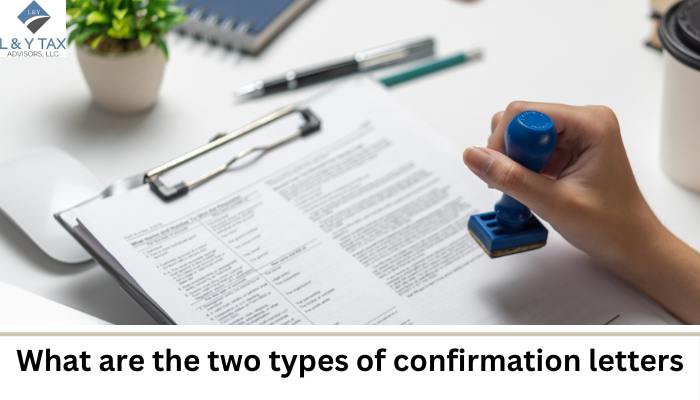
What Happens If You Get Audited and Don’t Have Receipts?
Let’s start talking by spitting the facts!
The Internal Revenue Service (IRS) isn’t a boogeyman to your business, and there’s no need to worry about what happens if you get audited and don’t have receipts – unintentional and honest mistakes will not put you behind bars!
An annual audit conducted by the IRS is paramount to review the check and balances of the financial situations of your organization, keeping the chances of economic crisis and bankruptcy at a distance.
The Beginning of an Audit
It starts with an audit letter from the IRS to your esteemed organization requesting the evidence for claims verification and guaranteeing information accuracy. This letter strikes as a horrifying nightmare for those taxpayers who have misplaced or lost important receipts and documentation for the IRS audit.
There’s no need to run away or flee from the country to avoid an income tax audit, thinking that there’s no way out from what happens if you get audited and don’t have receipts or if the matter is dragged to courts. Instead, this is the perfect opportunity to avail of business advisory services to safeguard the innocence and reputation of your firm.
For instance, if medical expenses are deducted, and you do not have the receipts anymore or the inventory of medical providers, prescriptions, or other medical costs. You can retrace the steps to determine the annual medical costs by visiting the healthcare facilities, doctors, or pharmacies from whom you got the treatment. If you still have access, bank statements are a great option to start from.
However, some items that are not retractable include:
1. Vacation Expenses
It includes travel and entertainment costs required to be recorded by receipts made at the time the expense is incurred.
2. Charitable Funds
Such financial contributions need accurate record maintenance because the receivers may back out from availing this help from you.
3. Mileage Logbook
Record maintenance also involves keeping track of the mileage, date, place, and business purposes.
4. Gambling Losses

Your wins and losses must be kept either in the form of a diary or an e-record that serves as receipts, tickets, statements, and documentation.
Guide: What Happens If You Get Audited and Don’t Have Receipts?
The IRS has the authority to halt these deductions, but if it seems rational, the auditors may allow the reconstruction of these expenses to a limited extent.
1. Cohan Rule – The Defense Tool
In income tax auditing, the Cohan rule states that when taxpayers are unable to produce records of actual expenditures, they may rely on reasonable estimates in the presence of some rational and reasonable factual basis.
Without this rule, thousands of businesses may not be able to claim expenditures tax without a receipt or necessary documentation. They need more insight to understand what happens if you get audited and don’t have receipts. Invoking this rule makes you claim certain expenses without the availability of the required tokens, provided with the authenticity and reasonability of these records.
2. Inquiring Vendors for Receipts
The facility of innovative automated payment systems has enabled small and large business owners to claim certain deductions without receipts. Getting in touch with past business partners and suppliers can help you inquire them about the details of invoices which provides you with an additional opportunity to buy time and make copies of those documents.
These receipts are an essential source of information for the IRS to tackle tax-related issues. Some vendors may charge a small amount as a fee to retrieve the tickets from previous records.
3. Appointment Records and Calendars
Misplaced receipts are retrievable if you consult the appointment book and calendars. It offers you the facilitation of searching for backup information about your services, clients, hospital bills, and records for travel without receipts. Furthermore, business purchases can be retracted by checking your calendar appointments for clients’ meetings.
4. Bank Account Statements
It is one of the best sources to get back to the payment records by verifying the account statements and credit card. Even if these documents provide a summarized picture of the expenses, they are still considered valuable proof supporting the claim of income tax returns. It is recommended to pay attention to the importance of canceled checks, as these documents further support your claims and assist the IRS in deciding in the best of your favor.
5. Social Media Applications
If you establish the date of offered services or business expenses, combining your phone records and social media apps history would be a considerable approach for you to find valuable information and evidence that supports your case on social media apps. The information on your social media applications and phone will help you retrace some business expenses, including travel, equipment purchase, and development costs.
Final Thoughts
Most taxpayers believe that they can slide away from the consequences of what happens if they get audited and don’t have receipts because failure to produce payment invoices, receipts, or documentation records may put the integrity of your company at stake unless you have provided the IRS with justified documents and equitable shreds of evidence or have invoked the Cohan rule – one of the historical approaches that save your interests.
It would be a wiser course of action to seek legal tax consulting services to get prior guidance so you don’t fall into the traps that will cost thousands to millions of dollars. The worst case scenario could be foul play with the IRS by presenting fake documents, making you suffer from the troubles of hefty fines and unbearable penalties.


